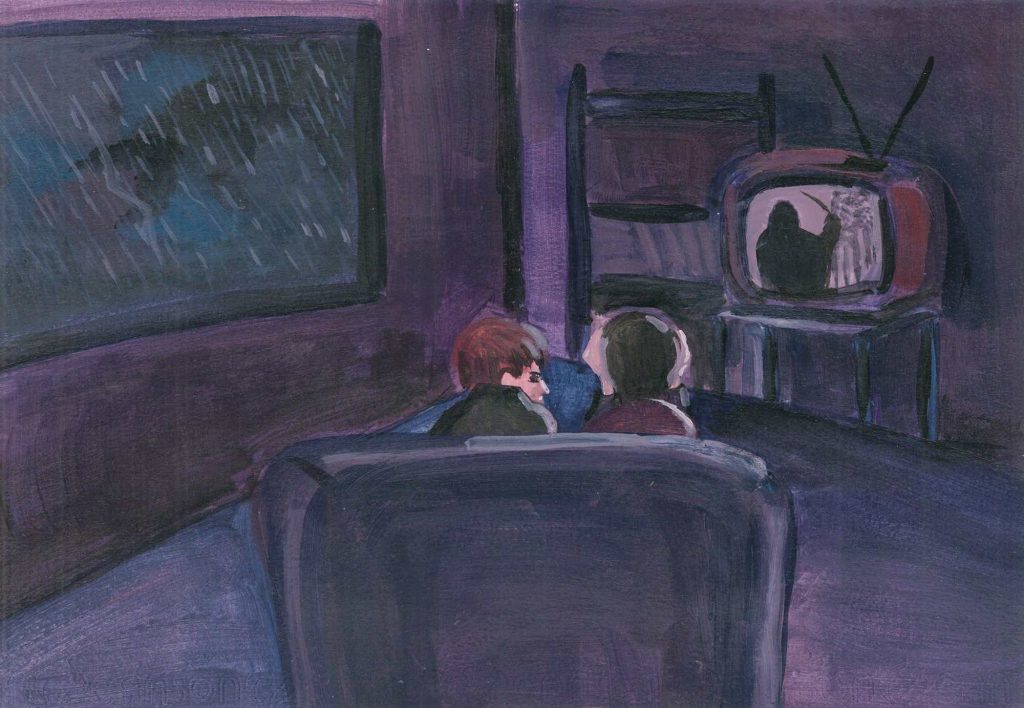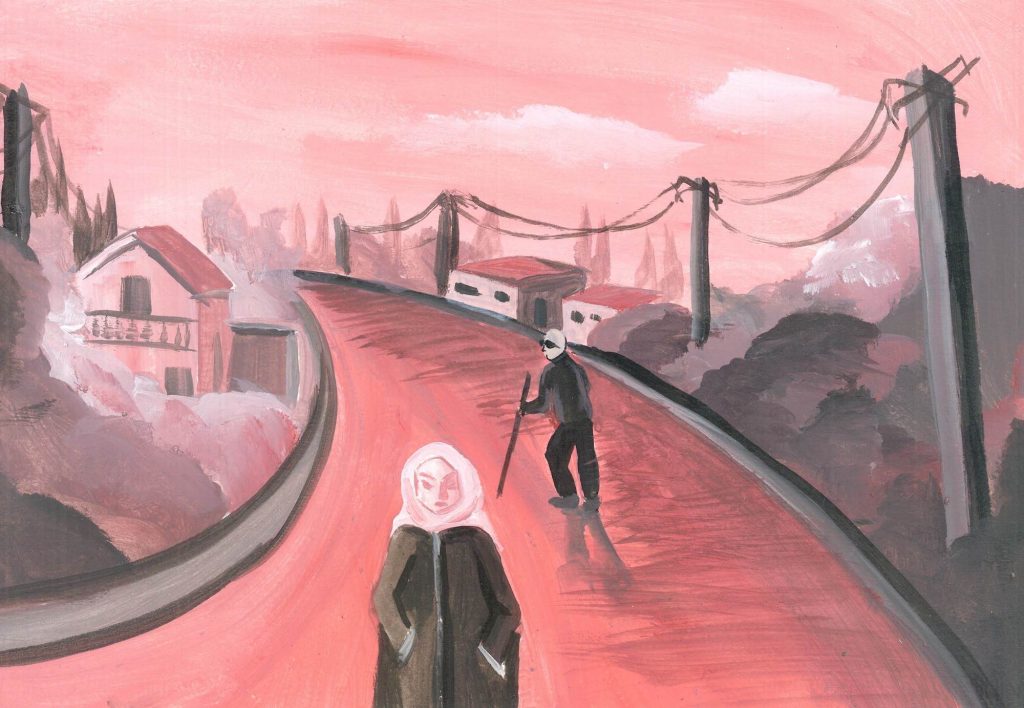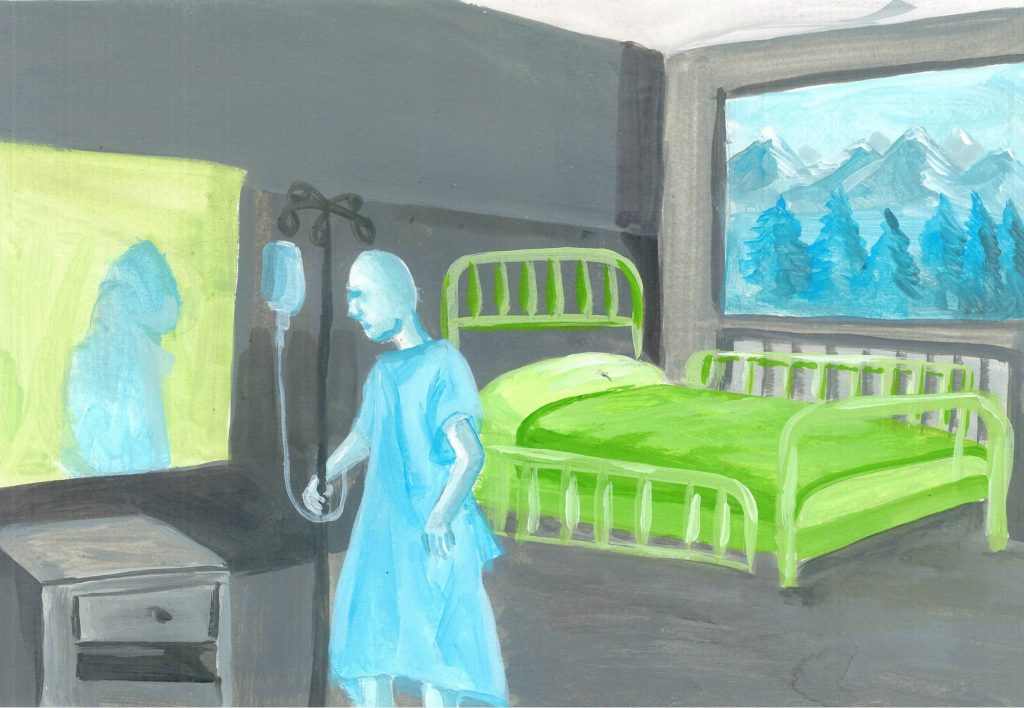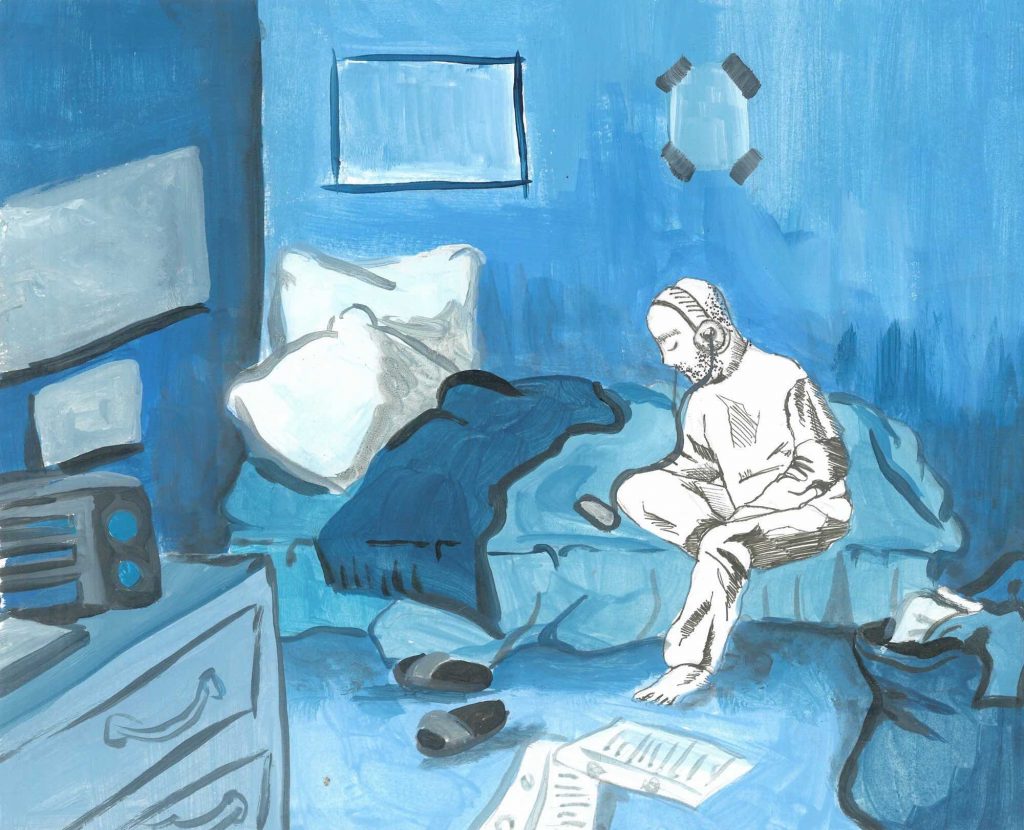But his happiness was short-lived.
Suddenly, darkness engulfed him again. His eyesight had been recovered for a mere two hours, during which he was able to perceive four colors only. The white snow, the blue sky, the green trees, and the fourth color was the one he was most familiar with: black, which quickly shattered his dream again.
The new operation was his last hope. When he heard a doctor in Nabatieh saying that he must undergo an urgent operation, he thought it was just a procedure to treat glaucoma, after which he would recover his eyesight.
At seven in the morning, Mohammad went to the hospital in Nabatieh. He entered the reception room. The nurse gave him an identification card, and then, he went into the operating room. He was anxious, panicking, and his hands began to shake uncontrollably while he was waiting to be anesthetized. He asked to go to the toilet to calm himself down. He was waiting for a miracle, so he started praying, sometimes turning his head left and right in tension. He stayed in the bathroom for five minutes, during which he thought about his fate, his uncertain future, and his mental state after the operation.
The nurse knocked on the door and asked if he needed any help. Mohammad did not answer. The nurse knocked again to no avail. The third time, Mohammad came out, surrendering himself to whatever fate might bring.
He was taken to the operating room, and sat on the bed. After he was anesthetized, the operation began, but he still felt pain. It was an excruciating kind of pain that he could never forget.
The operation lasted two and a half hours, after which he was transferred to the intensive care unit, where he was monitored for two hours, then transferred to a regular room. Mohammad woke up, blindfolded. He felt things in his heart that he could not tell anyone, not even his mother, who would not leave his side for a single moment. He grew suspicious when the nurse came in to check on him every ten minutes. He wanted to find out what had happened during the operation, because he had mixed sentiments, one telling him that something terrible had happened, and another calming him down. Just before he fell asleep, he began to realize that something serious must have happened. The anesthetic wore off, and the headache he felt was so severe that he almost passed out. He asked his family to go home because he wanted to be alone. The pain persisted throughout the early hours of the dawn. He spent the entire night alone, frightened, heavy-hearted, and clueless about what had happened during the operation, but he could sense that everyone around him was worried and hesitant to talk about it.
At nine o’clock in the morning, the doctor entered Mohammad’s room. He looked at his mother and told her that he couldn’t talk to Mohammad for fear that he would “hurt his feelings”. Mohammad, then, placed both his hands on the bandage and said:
– “I know what happened during the operation.”










